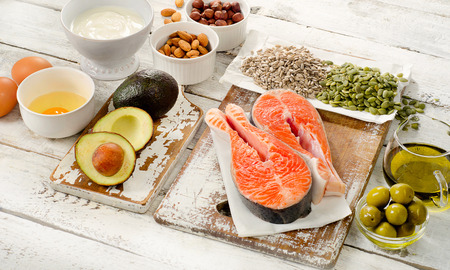
by Stephanie Margolis, R.D.
Omega 3 is an important good fat that help the body function, help keep the brain healthy, and can fight inflammation. There are many good sources of Omega-3s and some of the highest per serving are fish.
Buying fish can be hard because you not only want it to be high in omega-3s but also low in mercury. There’s also the environmental factors to consider.
When talking omega-3s you probably also hear about omega-6s. What studies have shown is that the average American diet (kids and adults) provides adequate amounts of omega-6s. This is why focusing on foods with omega-3s is very important because they are essential nutrients and you are likely not getting enough of them.
By consuming fish just 2 days per week you are meeting your omega-3 needs for the entire week.
*Note: The information listed below is not specific to breastfeeding or pregnant moms. For more nutrition guidance visit our pregnancy and breastfeeding nutrition articles.
Best bets:
- #1 Wild salmon: This tends to be one of the best fish all around. Technically salmon that is fresh, frozen, or canned is good and high in omega 3s. Wild salmon is good because you bypass the farming part, and many claim it tastes better.
- #2 Mackerel and cod: also high on the list for high omega-3 content.
- #3 Anchovies and rainbow trout are next.
- #4 Tilapia and other white fish still contain omega-3s and omega-6s but just not in as high of quantities. Cod, mackerel, and salmon have only omega-3s while tilapia, oysters, lobster, etc. have both omega-3 and omega-6.
- #5 Seeds: Not everyone is a fish lover so there are several foods that actually have higher amounts of omega-3s but are not foods you either eat in larger quantities or eat on a regular basis. For example, flaxseed oil and flaxseeds have the highest concentrations but it is very unlikely you are going to sit down and eat a whole tablespoon of flaxseed oil at once. This is why we add these types of things into a meal plan to help inch up your overall intake. Other foods like walnuts and fortified eggs can also help boost your omega-3s if you aren’t eating seafood. As well as vegan spirulina.
Read more – Omega 6s … too much of a good thing?
